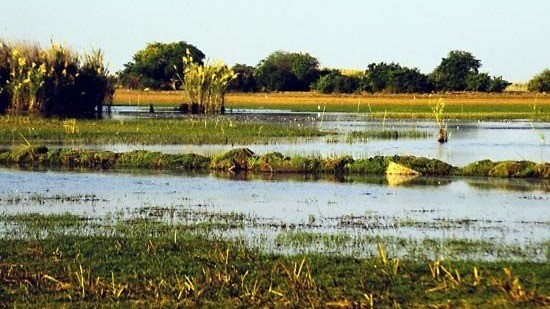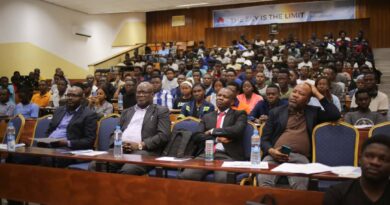Biodiversity and Water Management: Key Findings from Luapula Basin Research at 25th WaterNet Symposium
At the just ended 25th WaterNet/WARFSA/GWP-SA Symposium, researcher Chalwe Chibwe presented a compelling report on the biodiversity, weight-length relationship, and condition factor of fish in the Luapula Basin. His findings highlight the basin’s ecological importance and raise critical questions about the potential impacts of inter-basin water transfer (IBWT) initiatives.
Interbasin Water Transfer (IBWT) refers to the process of transferring water from one river basin (the donor basin) to another (the recipient basin) to address water scarcity, meet agricultural demands, or support urban development. This practice is often considered when a region has an excess of water, while another area faces a shortage.
Chibwe’s research reveals that the Luapula River Basin is rich in fish biodiversity and boasts healthy fish populations, which are crucial for both local communities and the national economy. “The fishes inhabiting these ecosystems serve as a source of food and trade,” Chibwe stated during his presentation. “It is imperative that any proposed water transfer from the Luapula Basin is conducted carefully to avoid significant ecological disruption.”
The report outlines the criteria for IBWT, emphasizing the need for a comprehensive ecological assessment prior to any transfer. Chibwe noted that while the Luapula Basin currently experiences high precipitation and is deemed to have excess water, the ecological status of both the donor and recipient basins must be thoroughly evaluated. “Our challenge lies in understanding the ecological impacts that surface only after implementation,” he warned.
Chibwe’s study employed various biodiversity indices, including the Shannon-Wiener and Simpson Diversity Indices, to assess the ecological health of the basin. His findings showed that the Luapula and Lake Bangweulu exhibit good ecosystem health, with scores of 66.7% and 77.8% respectively during the dry season.
However, the report also cautions against complacency, highlighting that while the basin shows signs of minimal disturbance, careful management and monitoring are necessary to preserve its ecological integrity. “Before considering any water transfer schemes, our priority must be to maintain the current ecological status to prevent degradation,” Chibwe urged.
The symposium serves as a vital platform for stakeholders to discuss sustainable water management practices, especially in the context of climate variability and increasing water demands. As the discussions continue, Chibwe’s insights underscore the importance of balancing human needs with ecological preservation in interbasin water transfer initiatives.
With water scarcity becoming an increasing concern globally, the implications of Chibwe’s research extend beyond Zambia, offering valuable lessons for other regions considering similar water management strategies. The call for comprehensive ecological assessments rings true as countries navigate the complexities of water resource management in the 21st century.



